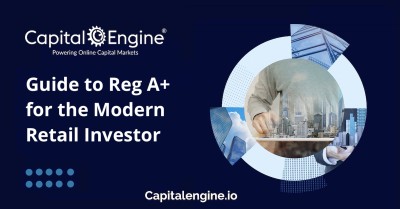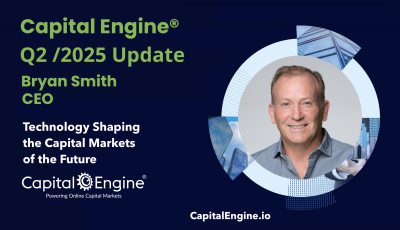Private Equity

Pitchbook
Private equity has traditionally been a preserve for institutional investors, yet fund managers are increasingly targeting high-net-worth individuals.
At the same time, the wealth managers and private banks serving this group have been increasing their allocation to the private markets.
By 2025, high-net-worth individuals will have 2.4x more assets in PE funds than in 2020, a total of $1.2 trillion globally, according to a report by Boston Consulting Group.
A Q1 2023 survey by Goldman Sachs found that family offices are planning to increase their exposure to risk assets, including PE, this year. Respondents had an average 26% asset allocation to PE, second only to 28% in public equities. Goldman Sachs also found that 41% were planning to increase their exposure to PE over the course of this year.
At the same time, GPs are looking for additional sources of capital, particularly as the fall in public market valuations has left institutional investors overallocated to private markets, which is known as the denominator effect.
William Barrett, managing partner of French placement agent Reach Capital, has seen how the larger banks with private client offerings have evolved over time.
"A lot of GPs started by building relationships with private wealth arms, and saw that these private wealth arms would bring up to €500 million (about $546 million) here, €800 million there," he said. "I'm thinking of BNP Private Wealth, UBS, Credit Suisse, etc. All of these banks' private wealth offerings are growing."
Barrett noted that some private wealth managers are significantly increasing their PE allocation, further helping to ignite GP interest in this investor class. These include Rothschild, which announced in May a standalone private markets offering within its wealth and asset management division, and the UBS takeover of Credit Suisse June 12.
GPs are targeting this market, including independent wealth managers. KKR is planning for up to 50% of its new capital raised over the next few years to come from private wealth, consulting firm Bain & Company reported.
Fintech companies Moonfare and Titanbay—which are backed by asset managers Fidelity International and Abrdn, respectively—offer platforms to facilitate retail investing in PE funds. These services help investors overcome regulatory hurdles and provide access to a selection of PE funds by well-established GPs including The Carlyle Group, Cinven, KKR and EQT.
"Platforms are great at solving the access problem associated with PE, such as regulatory hurdles and proving you are a sophisticated investor with the means to invest in the asset class," said Tom Douie, CEO of Private Markets Alpha.
While these platforms serve a purpose for high-net-worth individuals looking to diversify their portfolios, there is another breed of firms offering a curated selection of highly specialized investments.
Private Markets Alpha does not offer a direct-to-consumer proposition; rather, it partners with wealth management firms to deliver suitable investment solutions that fit their broad client needs.
Similarly, Jason Proctor, CEO of Truffle, provides access to the private markets with his firm acting as an LP—for example, offering wealth management and private bank clients a PE fund-of-funds solution.
"There is an underlying demand from GPs, but also from wealth managers and many of their investors, to get exposure to PE," he said.
Luring Thirsty Investors with Liquidity
While there have been a host of new entrants looking to solve the issues barring access to the private markets, some of the largest PE firms in the world have also been working on the problem.
Liquidity is the one of the biggest barriers for PE investors, and even institutions sometimes balk at the notion of tying up their assets for the 10-year lifecycle of a typical PE fund.
In May, two firms launched semi-liquid funds to give private wealth clients access to PE strategies: EQT with EQT Nexus and Apollo Global Management with Apollo Private Markets SICAV, a platform of two funds.
A semi-liquid fund allows investors to redeem a certain amount of their cash from a normally illiquid asset class, potentially making the fund more suitable for rich retail clients or their wealth managers.
These funds are not for the masses, however, and they have requirements such as sophisticated investor status and high investment minimums.
Douie describes illiquidity as "the elephant in the room for private markets." The funds offered by his firm, Private Markets Alpha, aim to be of shorter duration than most. For instance, the firm's distressed and special situations strategy is a six-year investment compared to the industry average of between eight and 10 years, he said.
Private Markets Alpha achieves this by investing in later-stage funds. The funds it selects are already 30% to 50% invested, which Douie refers to as a J-curve mitigant.
For asset managers, keeping investors' money tied up is one draw to PE.
"This asset class offers potentially strong growth for the coming decade and more. The fee streams are often very sticky and long duration," said Alistair Watson, Abrdn's head of strategy innovation for PE.
Why PE is a Growth Market
The outperformance of PE may explain the projected growth in investment. PE has outperformed major public market indices by well over 300 basis points over 5-, 15- and 20-year periods, according to the Cambridge Associates US Private Equity Index as of Jan. 30.
Over a one-year period, US PE buyout and growth equity funds have returned a modest 6.7%, which still compares well to the 25.6% and 10.9% losses recorded in the Russell 2000 and S&P 500 respectively, according to the index.
Kostas Manolis, head of private equity at UK-based boutique asset manager Downing, sounds a warning to any PE firms that might expect the retail market to be easy pickings compared to dealing with sophisticated institutional investors.
He says the intermediary market will continue to consolidate and mature, and the larger aggregators of retail capital perform deep due diligence on products and on the robustness of operational infrastructure.
Still, PE firms are tailoring their offerings to suit private wealth clients. Whether these funds will provide the desired returns is the next challenge.
About Capital Engine®
Capital Engine® provides forward-thinking organizations with efficient and scalable private capital and investor management solutions, for both traditional and digital assets.
Built for high-performance capital raising, our technology helps leverage the opportunity to better originate and showcase a diverse selection of private investment deals and offer these to investors i.e. a deal’s potential viability can be better assessed, market appetite determined and transaction promptly closed.
Our clients include broker dealers, family offices, wealth managers, incubators, accelerators, social impact and real estate funds, in providing customized SaaS solutions to power private capital and alternative investment platforms, with a strong focus on investor management services.
Interested in raising capital
Request a Demo
Private equity has traditionally been a preserve for institutional investors, yet fund managers are increasingly targeting high-net-worth individuals.
At the same time, the wealth managers and private banks serving this group have been increasing their allocation to the private markets.
By 2025, high-net-worth individuals will have 2.4x more assets in PE funds than in 2020, a total of $1.2 trillion globally, according to a report by Boston Consulting Group.
A Q1 2023 survey by Goldman Sachs found that family offices are planning to increase their exposure to risk assets, including PE, this year. Respondents had an average 26% asset allocation to PE, second only to 28% in public equities. Goldman Sachs also found that 41% were planning to increase their exposure to PE over the course of this year.
At the same time, GPs are looking for additional sources of capital, particularly as the fall in public market valuations has left institutional investors overallocated to private markets, which is known as the denominator effect.
William Barrett, managing partner of French placement agent Reach Capital, has seen how the larger banks with private client offerings have evolved over time.
"A lot of GPs started by building relationships with private wealth arms, and saw that these private wealth arms would bring up to €500 million (about $546 million) here, €800 million there," he said. "I'm thinking of BNP Private Wealth, UBS, Credit Suisse, etc. All of these banks' private wealth offerings are growing."
Barrett noted that some private wealth managers are significantly increasing their PE allocation, further helping to ignite GP interest in this investor class. These include Rothschild, which announced in May a standalone private markets offering within its wealth and asset management division, and the UBS takeover of Credit Suisse June 12.
GPs are targeting this market, including independent wealth managers. KKR is planning for up to 50% of its new capital raised over the next few years to come from private wealth, consulting firm Bain & Company reported.
Fintech companies Moonfare and Titanbay—which are backed by asset managers Fidelity International and Abrdn, respectively—offer platforms to facilitate retail investing in PE funds. These services help investors overcome regulatory hurdles and provide access to a selection of PE funds by well-established GPs including The Carlyle Group, Cinven, KKR and EQT.
"Platforms are great at solving the access problem associated with PE, such as regulatory hurdles and proving you are a sophisticated investor with the means to invest in the asset class," said Tom Douie, CEO of Private Markets Alpha.
While these platforms serve a purpose for high-net-worth individuals looking to diversify their portfolios, there is another breed of firms offering a curated selection of highly specialized investments.
Private Markets Alpha does not offer a direct-to-consumer proposition; rather, it partners with wealth management firms to deliver suitable investment solutions that fit their broad client needs.
Similarly, Jason Proctor, CEO of Truffle, provides access to the private markets with his firm acting as an LP—for example, offering wealth management and private bank clients a PE fund-of-funds solution.
"There is an underlying demand from GPs, but also from wealth managers and many of their investors, to get exposure to PE," he said.
Luring Thirsty Investors with Liquidity
While there have been a host of new entrants looking to solve the issues barring access to the private markets, some of the largest PE firms in the world have also been working on the problem.
Liquidity is the one of the biggest barriers for PE investors, and even institutions sometimes balk at the notion of tying up their assets for the 10-year lifecycle of a typical PE fund.
In May, two firms launched semi-liquid funds to give private wealth clients access to PE strategies: EQT with EQT Nexus and Apollo Global Management with Apollo Private Markets SICAV, a platform of two funds.
A semi-liquid fund allows investors to redeem a certain amount of their cash from a normally illiquid asset class, potentially making the fund more suitable for rich retail clients or their wealth managers.
These funds are not for the masses, however, and they have requirements such as sophisticated investor status and high investment minimums.
Douie describes illiquidity as "the elephant in the room for private markets." The funds offered by his firm, Private Markets Alpha, aim to be of shorter duration than most. For instance, the firm's distressed and special situations strategy is a six-year investment compared to the industry average of between eight and 10 years, he said.
Private Markets Alpha achieves this by investing in later-stage funds. The funds it selects are already 30% to 50% invested, which Douie refers to as a J-curve mitigant.
For asset managers, keeping investors' money tied up is one draw to PE.
"This asset class offers potentially strong growth for the coming decade and more. The fee streams are often very sticky and long duration," said Alistair Watson, Abrdn's head of strategy innovation for PE.
Why PE is a Growth Market
The outperformance of PE may explain the projected growth in investment. PE has outperformed major public market indices by well over 300 basis points over 5-, 15- and 20-year periods, according to the Cambridge Associates US Private Equity Index as of Jan. 30.
Over a one-year period, US PE buyout and growth equity funds have returned a modest 6.7%, which still compares well to the 25.6% and 10.9% losses recorded in the Russell 2000 and S&P 500 respectively, according to the index.
Kostas Manolis, head of private equity at UK-based boutique asset manager Downing, sounds a warning to any PE firms that might expect the retail market to be easy pickings compared to dealing with sophisticated institutional investors.
He says the intermediary market will continue to consolidate and mature, and the larger aggregators of retail capital perform deep due diligence on products and on the robustness of operational infrastructure.
Still, PE firms are tailoring their offerings to suit private wealth clients. Whether these funds will provide the desired returns is the next challenge.
About Capital Engine®
Capital Engine® provides forward-thinking organizations with efficient and scalable private capital and investor management solutions, for both traditional and digital assets.
Built for high-performance capital raising, our technology helps leverage the opportunity to better originate and showcase a diverse selection of private investment deals and offer these to investors i.e. a deal’s potential viability can be better assessed, market appetite determined and transaction promptly closed.
Our clients include broker dealers, family offices, wealth managers, incubators, accelerators, social impact and real estate funds, in providing customized SaaS solutions to power private capital and alternative investment platforms, with a strong focus on investor management services.
Interested in raising capital
Request a Demo
Latest Articles





